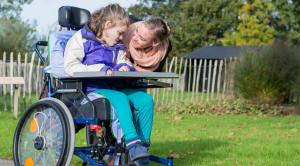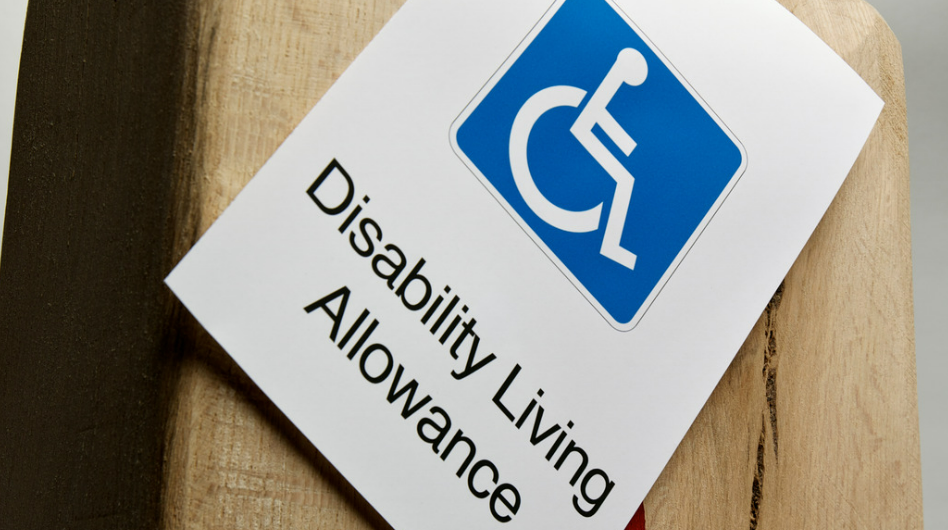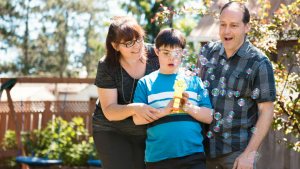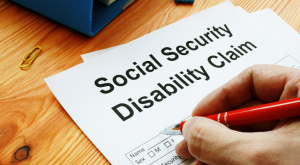If you are the parent of a child who has a disability, you may be wondering what your child’s DLA is. DLA is a government benefits scheme that provides financial assistance to people who have a disability. This can include children who have any physical or mental impairment that affects their ability to live independently. If you are eligible for DLA, you can receive money to help with the costs of things like housing, food, and transport. You can also use the money to pay for specialist care and accommodation
What is Disability Living Allowance (DLA)?

Disability Living Allowance (DLA) is a benefit that helps people with disabilities live in the same way as other members of the general population. It’s designed to help people with moderate to severe disabilities live independently, and it can cover a range of costs, including:
Personal care items
- Comfort needs
- Access to public transport
- Services such as daycare and home help
Can My Child Get DLA?

If your child has caring needs that prevent them from fulfilling their usual activities, or if they have mobility needs that make it difficult for them to live an independent life, they may be able to claim Disability Living Allowance (DLA).
1. Caring Needs
Caring needs are those activities that need to be carried out in order for your child to take care of themselves. This could include things like bathing, dressing, and eating. Mobility needs refer to the need for your child to have reasonable access to places they need to go in order to live a personal independent life. This could include things like being able to get around the house and attend school or work.
2. Mobility Needs
To claim DLA, you will need to provide proof of your child’s caring needs and mobility needs. You can either do this yourself or ask a friend or family member to help you gather the evidence. You will also need original paperwork from any doctor, therapist, or social worker who has assessed your child’s care needs and mobility requirements. If you’re unable to gather all of the necessary documentation yourself, you can always contact the Department for Work & Pensions (DWP) for assistance.
How Much Disability Living Allowance (DLA) for Children Get?
1. Care Component
Your child will receive the highest rate of Disability Living Allowance (DLA) if they have a care component. This means that their weekly allowance will be based on the percentage of their income that’s spent on caring for themselves.
The highest rate of DLA is £92.40 per week, and it applies to children who require significant daily assistance with activities such as dressing, bathing, eating, or toileting.
The middle rate of DLA is £61.85 per week, and this applies to children who need some help but not to the same extent as those who have a care component.
The lowest rate of DLA is £24.45 per week, and this applies to children who do not require any assistance from others in order to live a normal life.
2. Mobility Component
Your child will receive a higher DLA rate if they have a substantial disability that affects their mobility. The higher rate is £64.50 per week, and the lower rate is £24.45 per week.
3. Benefit Cap
The benefit cap is a limit to the total amount of money you can get from benefits. It was introduced in 2013 as part of the government’s austerity measures, and it applies to people who are living in England, Scotland, Wales, or Northern Ireland.
The benefit cap is set at £26,000 per person per year. This means that if you’re earning more than this, you won’t be able to receive any benefits from the government. You may still be able to claim other forms of social assistance, like housing or food benefits, however.
How Do I Claim Disability Living Allowance (DLA)?
England or Wales
If you’re in England or Wales and you’re finding it difficult to do things on your own because of a mental or physical illness, you may be eligible for Disability Living Allowance (DLA).
To claim DLA, you first need to speak to your local social security office. They will ask you a few questions about your condition and whether it is causing you significant difficulties. From there, they will decide whether or not you are eligible for the benefit.
If you are approved, DLA will give you a weekly allowance that can help cover living costs while recovering. It’s important to note that this isn’t a permanent solution – it’s only meant as a temporary measure until you are able to resume your everyday life.
If you have any further questions about DLA or other social security benefits, please don’t hesitate to call our hotline at 0800 121 4523. We’ll be happy to help!
Northern Ireland
If you’re in Northern Ireland and require financial support because of a physical or mental disability, you may be entitled to Disability Living Allowance (DLA). You can apply for DLA online, by phone, or by text.
To apply online, first, navigate to the website and click on the ‘Apply for benefits’ link. On the next screen, enter your details and click ‘submit application’.
To apply by phone, call 0800 587 0912 from anywhere in Northern Ireland. A specialist will be able to help you with your application and answer any questions that you may have.
To apply by text, send a short message to 0800 012 1574. Your message will be delivered within 30 minutes.
How Do I Challenge a DLA Decision?

If you’re unhappy with a Disability Living Allowance (DLA) decision, there are several steps you can take to challenge it.
The first step is to speak to your local benefits office and explain your concerns. They may be able to help you understand the reasoning behind the decision, or they may be able to provide you with additional information that will help you make a stronger case.
If your concerns still haven’t been resolved after speaking to the benefits office, you can take your case further by appealing the decision. You’ll need to submit documentation of your disability and how it affects your life, as well as evidence that the DLA level awarded is not appropriate. Finally, you’ll need to pay a fee for this process, which varies depending on the type of appeal you make and where you live.
Conclusion
The eligibility criteria and the amount of DLA are different for children than it is for adults. To get more information, consult the department of social welfare. However, there are some basic guidelines that can be followed while deciding whether your child qualifies or not. To start with, you can verify if your child has physical or mental disabilities such as Down syndrome or autism spectrum disorder (ASD).











Leave feedback about this